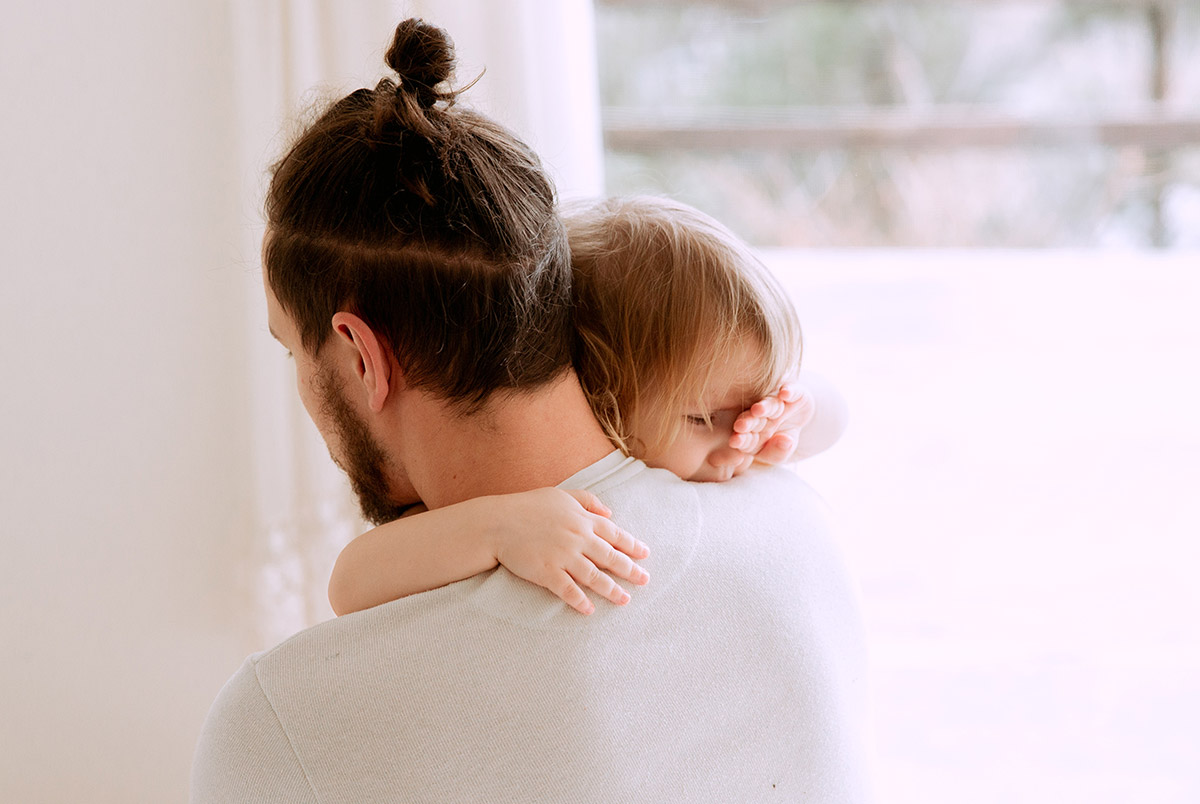The postpartum period and the years that follow bring many changes and hurdles for both parents. Postpartum depression is commonly discussed as a female issue, but an estimated one in ten men will develop male postpartum depression in the first year of their child’s life. While many fathers are thrilled by the arrival of their newborn, it can also be a time when anxiety, stress and depression are triggered.
There are many reasons why men suffer from postnatal depression. It may be that their expectations of fatherhood don’t always mirror what is going on in real-life. Or it may be that they are overwhelmed with their new role.
Some men can put enormous pressure on themselves to be the “ideal” dad, while others find it hard to come to terms with all the upheavals experienced in the early stages of fatherhood. They may even feel a sense of loss about changes in their relationship, including intimacy and the lack of alone time. And of course, all these feelings are exacerbated by a lack of sleep.
While there is no single reason why men may experience postnatal depression, the possibility of developing it after a baby is born is greater if a father has:
- Been depressed before
- A lack of practical, social and emotional support
- A strained relationship with his partner
- A partner who’s already experiencing depression and anxiety
- Ongoing financial difficulties
- Poor physical health
- Trouble bonding with his baby
- Issues expressing his feelings over concerns he will be considered “less of a man”.
What are the signs of postpartum depression in men?
New dads may not even be aware that they are showing signs of postnatal depression, because it’s easy to dismiss it as expected levels of exhaustion or stress.
However, if your symptoms include irritability, feeling hopeless, poor concentration, crying a lot or feeling teary, feeling numb, a low mood or negative feelings for a period longer than two weeks, you may want to see your GP or seek help from a mental health professional.
What can fathers with postnatal depression do?
If you think you or your partner might be suffering from male post-natal depression, it’s important to take steps to address it. The following advice can help if you’re feeling lost.
Don’t let self-care go
Finding time for self-care may seem impossible, but setting aside time for yourself is integral to your well-being. Try and establish daily healthy habits such as eating a balanced diet, scheduling some time to exercise and finding some regular time to relax and reflect on your own.
Be kind to yourself
It’s easy for men to put themselves last in the postpartum period. Your partner has just gone through a major medical event and is now grappling with breastfeeding and a hormonal shift, and there’s a new tiny person to care for, too. Of course, you need to support and care for your partner and baby at this time, both emotionally and physically, but you must also steal some moments to recharge your own batteries.
Remember that you are both learning and adjusting to your new roles. You will both make mistakes and it’s not your responsibility to fix everything. If you find yourself struggling, recognise that you are feeling this way, acknowledge it and accept that it is okay to feel all your feelings.
Lean on your village
Your household may feel tense or chaotic in this time, but you and your partner need to stay connected to help each other through this major transition. Even if it’s only for half an hour, talking to your partner daily will keep the lines of communication open.
Make time to keep in touch with your friends, siblings, parents, and colleagues. Whether they have children or not, find someone you are comfortable confiding in. Considering how common male postnatal depression is, it’s very likely someone in your circle has had the same experience.
Parent groups, playgroups and online forums aren’t just for new mums – there are a plethora of options for new dads to socialise too. Look online for men’s support groups, head to the local park, take your little one to swimming lessons or playgroup – you’ll be surprised by the number of dads looking for a connection in this stage of life.
Finally, if you’re worried about any of the symptoms you’re experiencing, book in to see your GP and consider seeking professional help from a counsellor.






